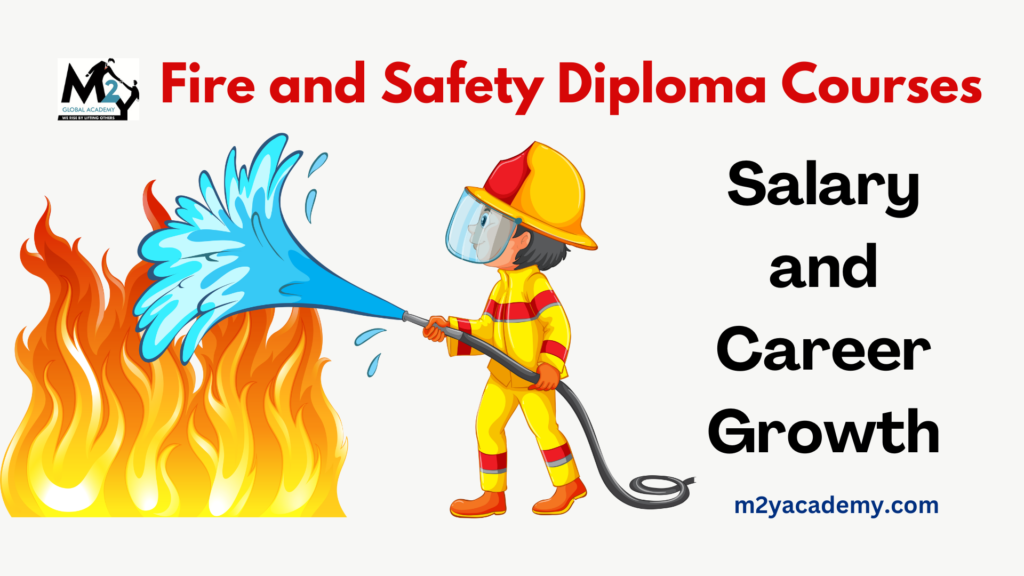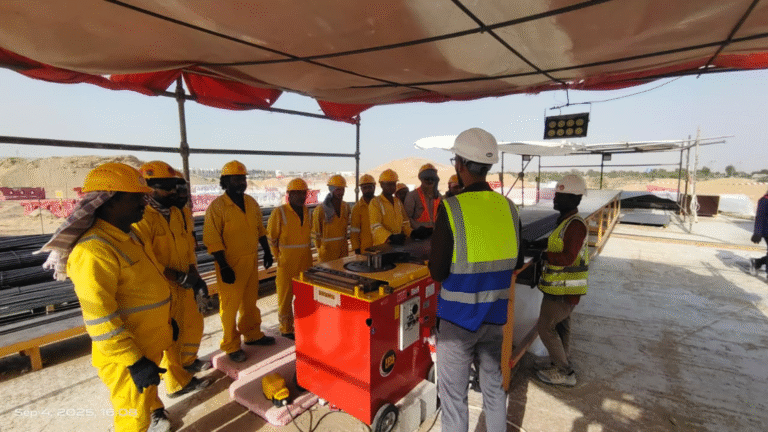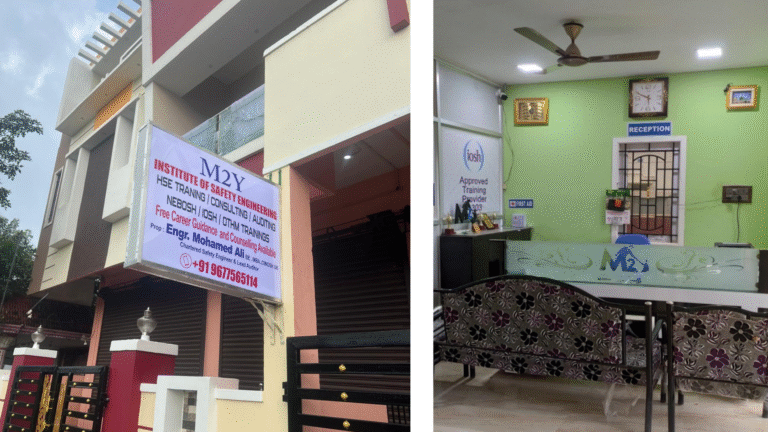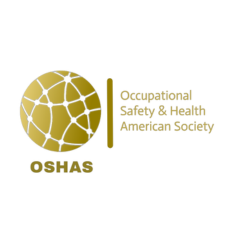Diploma in Fire and Safety
Fire and Safety Diploma Courses: An In-depth Guide with Job Opportunities
In today’s world, the importance of safety cannot be overstated. Whether it’s in industrial settings, commercial buildings, or residential complexes, fire and safety measures are critical. Here we see Diploma in Fire and Safety Salary details.
This growing awareness has led to an increased demand for professionals skilled in fire and safety management. A Fire and Safety Diploma course is one such pathway that equips individuals with the necessary knowledge and skills to ensure safety and manage fire-related incidents effectively.
This article delves into the details of Fire and Safety Diploma courses, their curriculum, career prospects, and job opportunities for graduates.
Diploma in Fire and Safety
A Fire and Safety Diploma is a specialized program designed to educate students on various aspects of fire safety, prevention, and management. The course covers a wide range of topics including fire science, safety regulations, emergency response strategies, and risk assessment. These courses aim to produce competent safety professionals who can implement effective safety measures and respond efficiently to emergencies.

Fire Safety Diploma Eligibility and Admission Process
Eligibility criteria for enrolling in a Fire and Safety Diploma course vary depending on the institution. Generally, the following requirements apply:
- Educational Qualification: A minimum of a high school diploma or equivalent. Some advanced courses may require a background in science.
- Age Limit: Typically, candidates must be at least 18 years old.
- Physical Fitness: Given the physically demanding nature of fire and safety jobs, a medical fitness certificate may be required.
The admission process usually involves submitting an application form, followed by an entrance test or interview in some cases. Prospective students should check specific requirements with the institutions they are interested in.
Fire Safety Diploma Benefits
Skill Development: The course provides a strong foundation in fire safety and emergency management, equipping students with practical skills essential for the job.
Career Opportunities: Graduates have a wide range of job opportunities in various sectors, including industrial, commercial, and government.
Industry Recognition: A diploma from a recognized institution can enhance credibility and employability in the safety industry.
Professional Growth: Continuous advancements in safety technologies and regulations offer opportunities for ongoing learning and career advancement.
Job Opportunities and Career Prospects
Graduates of Fire and Safety Diploma courses have diverse career opportunities across multiple sectors. Here are some of the potential job roles and industries:
- Fire Safety Officer:
- Implement and monitor fire safety measures in organizations.
- Conduct fire drills and training sessions.
- Inspect and maintain fire safety equipment.
- Safety Supervisor:
- Oversee workplace safety protocols.
- Ensure compliance with health and safety regulations.
- Conduct risk assessments and accident investigations.
- Firefighter:
- Respond to fire emergencies and rescue operations.
- Operate firefighting equipment and tools.
- Provide first aid and emergency medical care.
- Safety Consultant:
- Advise organizations on safety policies and procedures.
- Conduct safety audits and hazard assessments.
- Develop and implement safety training programs.
- Emergency Response Coordinator:
- Plan and coordinate emergency response activities.
- Develop evacuation plans and emergency procedures.
- Liaise with emergency services and authorities.
- Industrial Safety Officer:
- Ensure safety in industrial settings like factories and plants.
- Monitor compliance with industrial safety standards.
- Investigate industrial accidents and incidents.
- Health and Safety Officer:
- Oversee health and safety practices in various workplaces.
- Conduct health and safety training for employees.
- Ensure adherence to occupational health and safety laws.
- Fire Safety Officer:
Industries Employing Fire and Safety Professionals
Manufacturing:
Factories and manufacturing plants require safety officers to manage risks and ensure a safe working environment.
Construction:
Construction sites have inherent hazards, making safety professionals crucial for maintaining safety standards.
Oil and Gas:
The oil and gas industry involves high-risk activities where fire and safety experts play a key role in preventing accidents.
Healthcare:
Hospitals and healthcare facilities need safety officers to manage fire risks and ensure patient safety.
Government and Public Sector:
Various government agencies and public institutions employ fire and safety professionals for compliance and emergency management.
Education:
Educational institutions require safety officers to protect students and staff and to comply with safety regulations.
Hospitality:
Hotels and resorts employ safety professionals to manage fire safety measures and ensure guest safety.
Diploma in Fire and Safety Salary
The Diploma in Fire and Safety Salary can vary depending on factors like location, industry, level of experience, and the organization they are employed in. Here’s a general breakdown of salary ranges based on experience and location:
In India:
- Entry-level (0-2 years): ₹2.5 lakh to ₹4.5 lakh per annum
- Mid-level (3-5 years): ₹4.5 lakh to ₹7 lakh per annum
- Senior-level (6+ years): ₹7 lakh to ₹12 lakh per annum
Internationally:
- Middle East (e.g., UAE, Qatar): $12,000 to $25,000 per year (or more, depending on experience)
- Europe/US: $40,000 to $70,000 per year (again, based on experience and certifications)
Factors like additional certifications, specific industry demand (such as construction, oil & gas, manufacturing), and safety regulations in the country can significantly influence the salary.
Certification and Further Studies
In addition to the diploma, obtaining certifications from recognized bodies can enhance career prospects. Some of the notable certifications include:
- NEBOSH (National Examination Board in Occupational Safety and Health): Internationally recognized certification for health and safety.
- IOSH (Institution of Occupational Safety and Health): Membership-based certification for safety professionals.
- NFPA (National Fire Protection Association): Certifications in various fire safety specializations.
Pursuing further studies, such as a Bachelor’s or Master’s degree in Safety Management, can also open up higher-level career opportunities and specialized roles.
Conclusion
A Fire and Safety Diploma is a gateway to a rewarding and impactful career. The course equips individuals with the essential skills and knowledge to manage fire risks and ensure safety in various settings. With a growing emphasis on safety across industries, the demand for qualified fire and safety professionals is on the rise. Whether you aspire to be a safety officer, firefighter, or consultant, this diploma provides a solid foundation for a successful career in the safety domain.
By choosing to pursue a Fire and Safety Diploma, you are not only investing in your future but also contributing to a safer and more secure environment for everyone.






























































